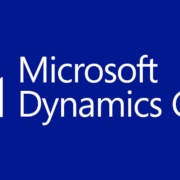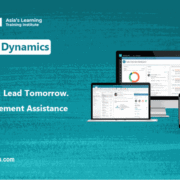How Secure Is Microsoft Dynamics for Business Data?
With the world today being so data-driven, companies are always vulnerable to cyberattacks, data breaches, and privacy infringements. With customer information, financial data, and company processes going online, security has become more important than ever before. That is where enterprise solutions such as MS dynamic take centre stage. Microsoft Dynamics 365 is not just a robust business application platform; it’s also constructed with enhanced security features that are intended to safeguard confidential business data. This article looks at the most important security features of Microsoft Dynamics, such as encryption, compliance, access control, and cloud protection, to see how well it protects business data.
Microsoft’s Integrated Security Framework
At the core of Microsoft Dynamics’ security is the trusted Microsoft Azure cloud platform. Azure is recognised globally for its rigorous security protocols and compliance with international standards. Microsoft invests over a billion dollars annually in cybersecurity and employs thousands of experts to monitor its infrastructure continuously. This is extended to Dynamics 365, which is advantageously armed with enterprise-level security features such as multi-layered protection, intelligent threat protection, and physical data centre security.
Role-based Access And Data Control
One of the standout features of Microsoft Dynamics is role-based security, which makes certain data and functionality accessible to specific users only. This allows salespeople to see only their leads, HR personnel to access employee files, and finance personnel to access only financial information. This level of fine-grained access control not only prevents internal misuse of data but also guards against unintended exposure of confidential information. In addition, administrators can establish field-level security, record-level permissions, and hierarchical security models, giving total control over who gets to see what within the system.
Data Encryption And Privacy Controls
MS Dynamics uses data encryption at rest and in transit. All stored data in Dynamics 365 is encrypted using robust industry standards such as AES 256-bit encryption. When data is being transferred between users or applications, it’s secured with Transport Layer Security (TLS) to avoid interception or tampering. Microsoft also complies with stringent data residency and privacy laws, such as GDPR, ISO/IEC 27001, and SOC 1 & 2 compliance. Companies can also set up DLP policies, audit logs, and retention options so that data is used and stored according to their corporate policies and legal obligations.
Advanced Threat Detection and Monitoring
Another incredibly strong feature of Microsoft Dynamics security is that it integrates with Microsoft Defender for Cloud, Microsoft Sentinel, and other smart monitoring solutions. These platforms incorporate artificial intelligence and machine learning technology to identify uncharacteristic behaviours, suspicious sign-ins, and possible breaches in real-time. For instance, if a person tries to log in from a strange location or device, admins are notified promptly. Behavioural analysis assists in categorising normal end-user behaviour as opposed to real threats, with minimal false positive alarms and timely responses. Proactive threat monitoring greatly improves the Dynamics 365 environment’s security posture.
Cloud Security And Uptime Assurances
As a cloud solution, MS Dynamics takes advantage of Microsoft’s globally distributed data centres and industry-leading uptime guarantees. Microsoft offers a 99.9% financially backed service level agreement (SLA) for Dynamics 365 to ensure businesses are disrupted as little as possible. Multiple layers of security protect each data centre, including biometric entry, video monitoring, and disaster recovery processes. In addition, all Microsoft cloud services are regularly audited by third parties to ensure security practices are verified, promoting transparency and trust. These steps guarantee that even in the case of natural disasters or cyber attacks, business information is secure and available.
User Awareness And Responsibility
Whereas Microsoft Dynamics itself provides robust facilities for guarding against business data breaches, end-users and administrators should also be taking positive steps in the way of safeguard the system. Multi-factor authentication (MFA), strong password strategies, and periodical training against phishing and online threats by Microsoft are highly advised for organisations. In addition, admins are requested to remain up-to-date on patches and watch activity logs often. If one fuses Microsoft’s security platform with in-house best practices, businesses can have an effective barrier against continuously transforming cyber attacks.
Conclusion
From strong encryption and role-based access to real-time threat detection and regulatory compliance, MS Dynamics provides a complete security framework that can meet the needs of today’s businesses. No system is, however, completely risk-free. Companies need to couple Microsoft’s sophisticated technology with robust in-house policies and continuous user training.
If employed responsibly, Microsoft Dynamics becomes more than a business application but rather a stronghold of sensitive business data.
Also, read: What Industries Can Benefit Most from Using Microsoft Dynamics?





Leave a Reply
Want to join the discussion?Feel free to contribute!